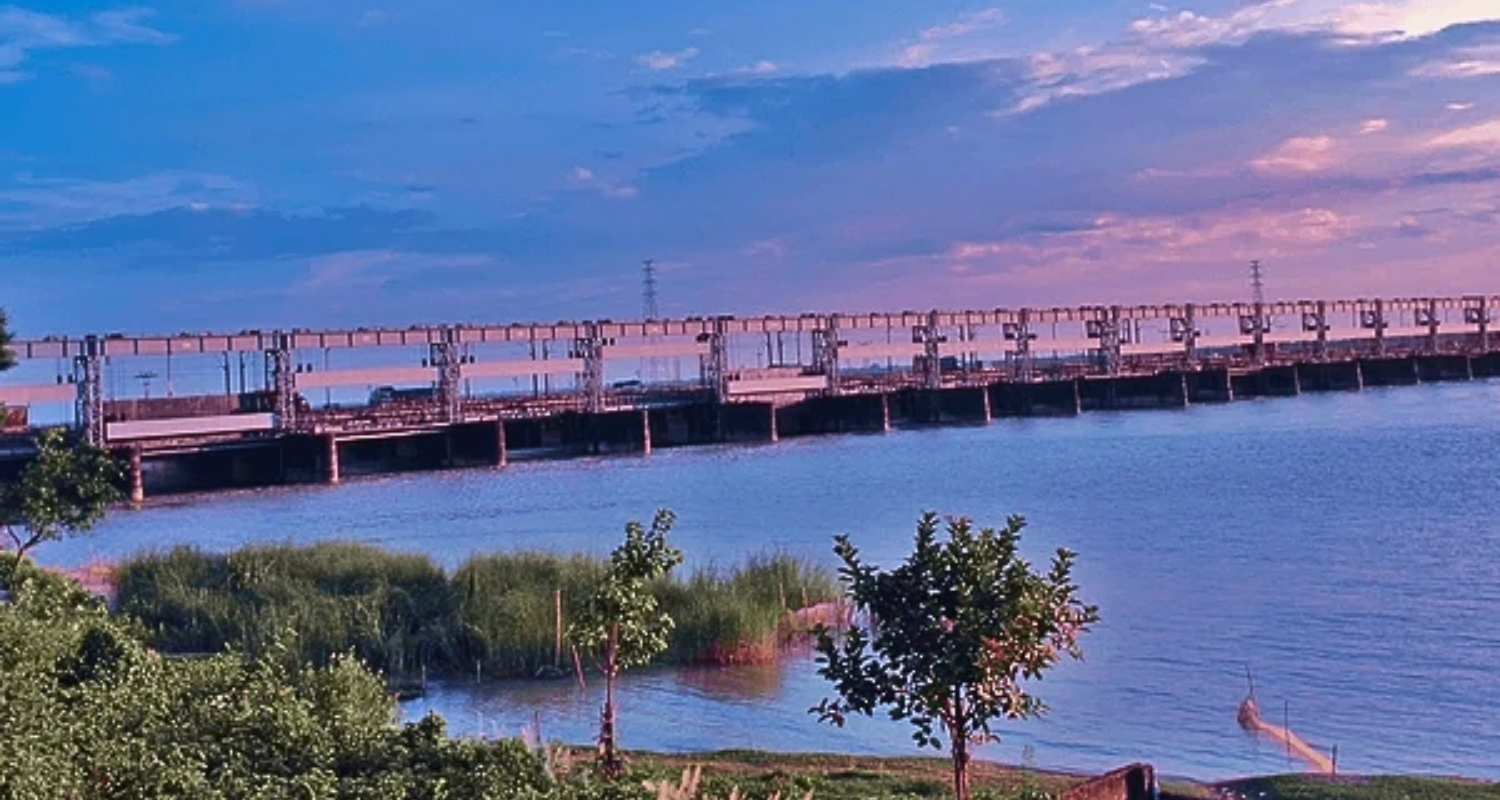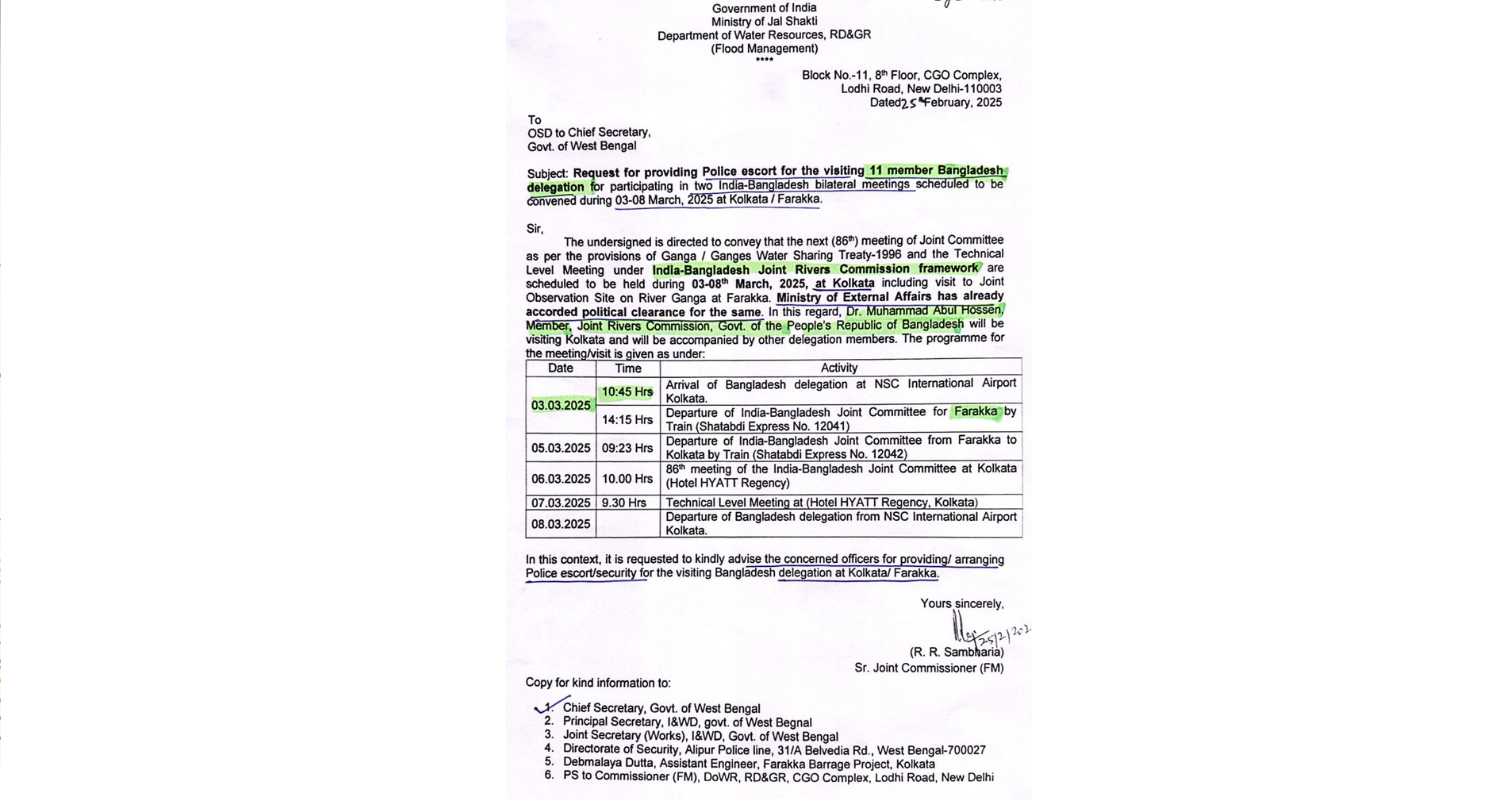A high-level delegation from Bangladesh’s Ministry of Irrigation is set to arrive in Kolkata on Monday, March 3, for a five-day visit that includes crucial discussions on the renewal of the Ganga Water Treaty.
The delegation, led by Mohammad Abdul Hossain, a member of the Joint River Commission (JRC), will hold meetings in Kolkata and conduct an on-site examination at the Farakka Barrage.

This visit comes at a critical juncture in India-Bangladesh relations, which have often been strained over water-sharing disputes and broader geopolitical concerns.
The visit has prompted the Union Ministry of Jal Shakti (Water Resources) to request adequate security arrangements for the Bangladesh delegation.
Senior Joint Commissioner (Flood Management) of the ministry, R.R. Sambharia, has written to West Bengal Chief Secretary Manoj Panth, emphasising the need for heightened security measures.
“The delegation will land in Kolkata on March 3 before travelling to Farakka by train on the same day. Their agenda includes an examination of water flow data at Farakka on March 5. However, their March 4 schedule remains undecided. High-level meetings between Indian and Bangladeshi representatives are scheduled for March 6 and 7 at a five-star hotel in Kolkata, where crucial discussions on the treaty renewal will take place,” said an official of the water resources department.

The Context of the Ganga Water Treaty
The Ganga Water Treaty, signed in 1996 between India and Bangladesh, is set to expire next year. At the time of signing, Bangladesh’s ousted Prime Minister Sheikh Hasina was at the helm of the government.
Over the years, the treaty has faced criticism, particularly from Bangladesh’s opposition party, the Bangladesh Nationalist Party (BNP), which has consistently alleged that the agreement was skewed in India's favour, causing significant water shortages in Bangladesh.
Sheikh Hasina’s return to power for a consecutive fourth term in 2024 has brought renewed focus on the issue. During her visit to India last year, preliminary discussions on the treaty renewal took place.
However, with the agreement’s expiration looming, Bangladesh is expected to demand additional water allocation, which could lead to a contentious negotiation process.
Potential disputes and the role of West Bengal
Water-sharing between India and Bangladesh has been a longstanding diplomatic challenge. The dispute over the Teesta River remains unresolved, and the renewal of the Ganga Water Treaty could spark a similar controversy.
Sources within the Bangladesh government indicate that Dhaka will push for increased water allocation, but India’s response will heavily depend on West Bengal’s stance.
The West Bengal government has already signalled its reluctance, citing a lack of additional water resources in the Ganges.
Chief Minister Mamata Banerjee previously opposed the Teesta Water Agreement, and her government’s resistance to providing extra water under the Ganga Treaty could create further diplomatic friction between Dhaka and New Delhi.
India-Bangladesh diplomatic challenges and the road ahead
The strained diplomatic ties between India and Bangladesh extend beyond water disputes.
While economic and strategic partnerships have strengthened over the years, recurring tensions over water-sharing agreements, border issues, and political differences continue to create friction.
The upcoming discussions on the Ganga Water Treaty will test the resilience of this bilateral relationship.
Whether India accommodates Bangladesh’s demand for additional water or maintains its current allocation remains to be seen.
As both nations prepare for negotiations, the outcome of these talks will have significant implications, not just for India-Bangladesh relations but also for the millions of people dependent on the Ganges for their livelihood and sustenance.
Also read: Why Teesta & Ganga treaties leave Mamata upset?




